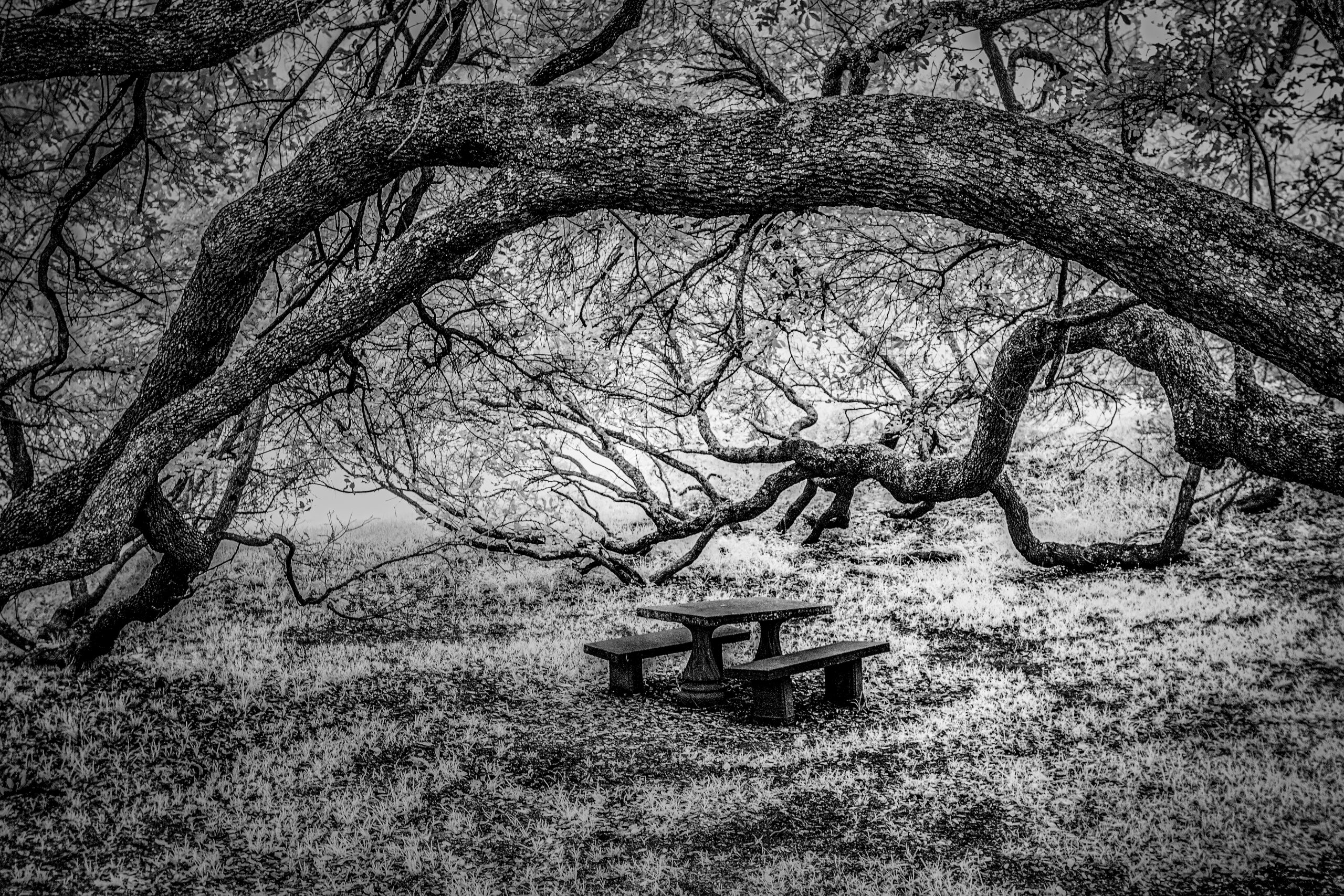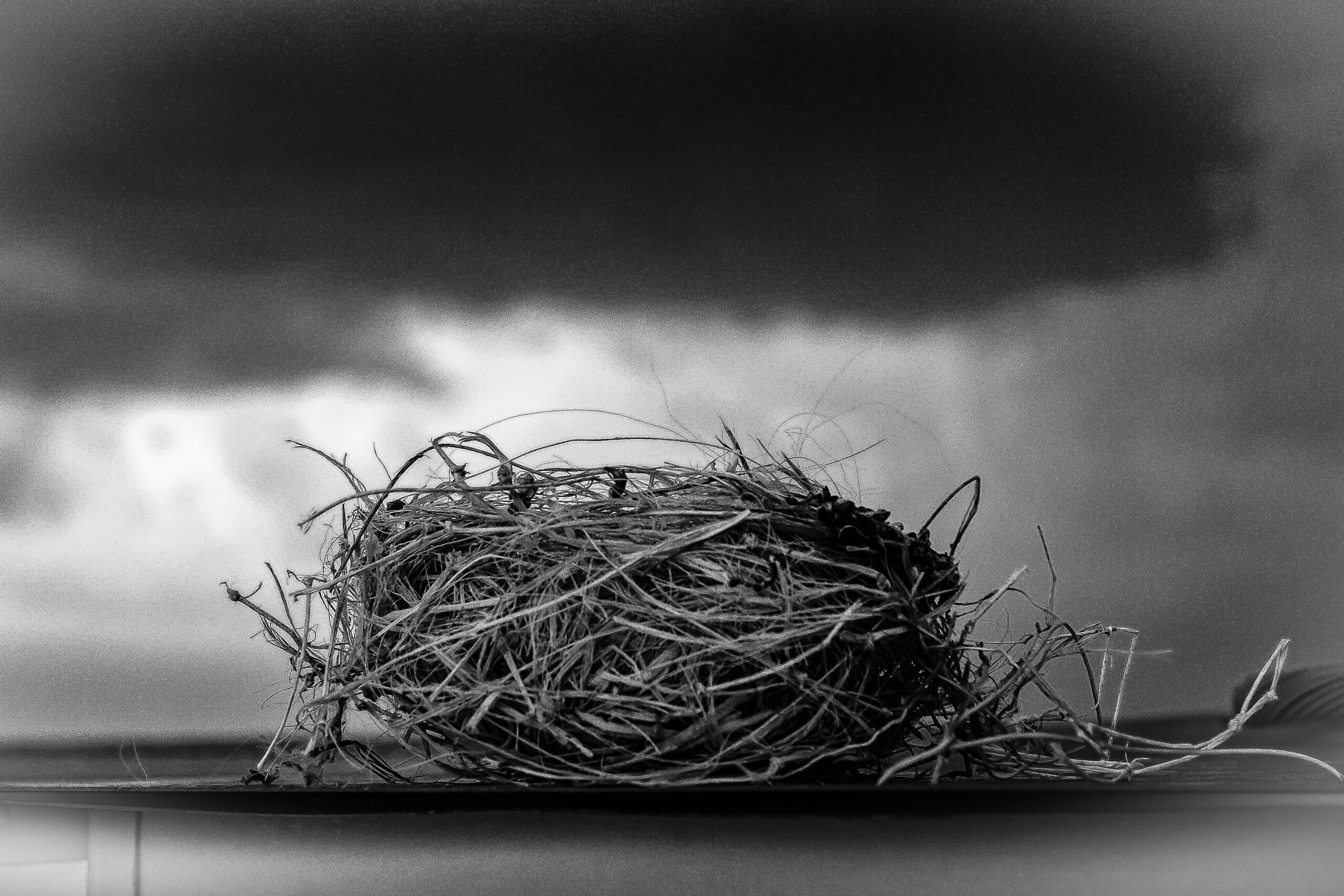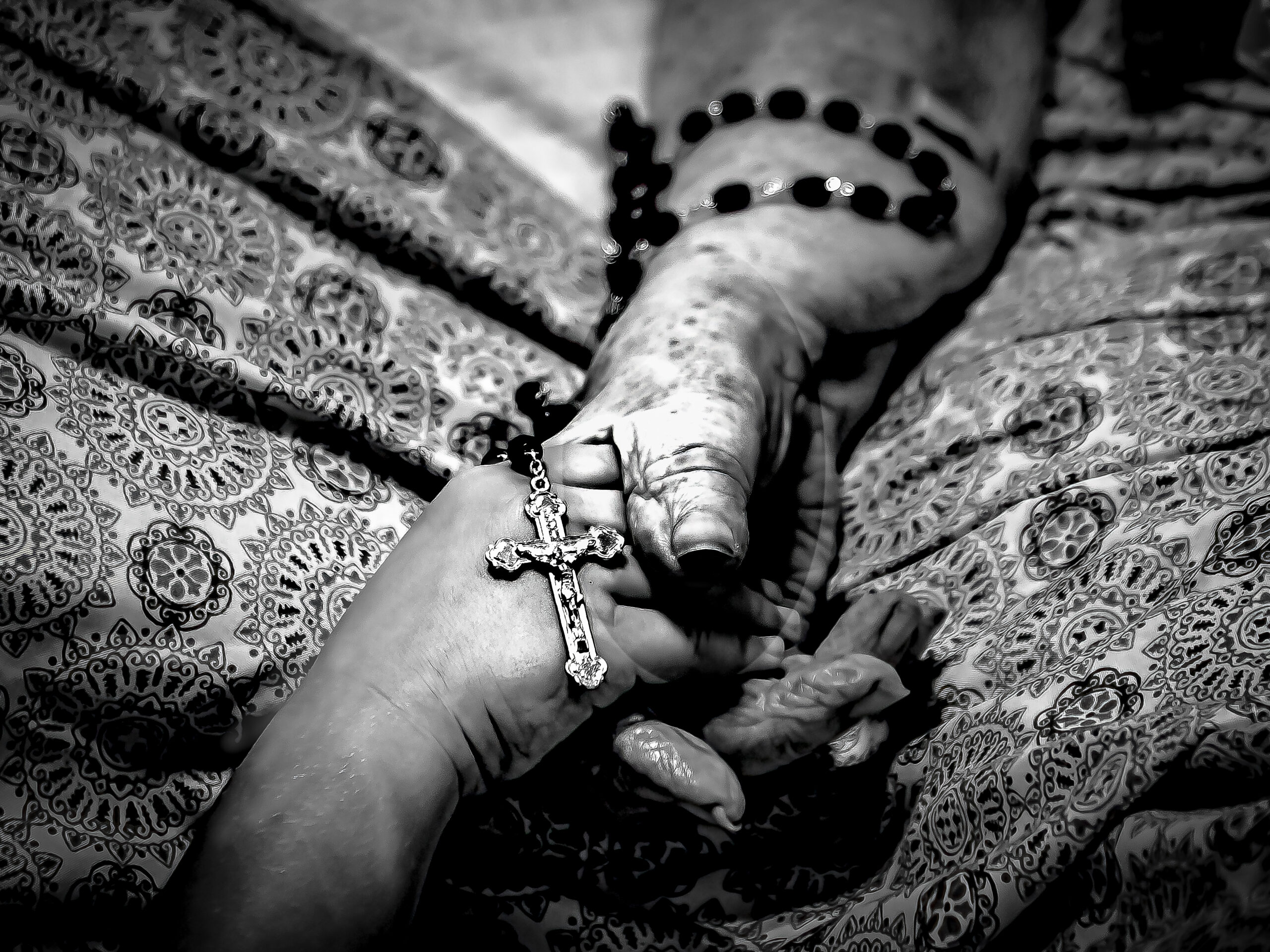
Local photographer Randy Roussel chronicles 2020 in new book ‘Your Hand in Mine’
In 2020, local lawyer Randy Roussel was enrolled in an online photography seminar taught by Whitney Johnson, director of visuals and immersive experiences at National Geographic, when he soon found himself capturing photographs of Southern nature and landmarks to document the first year of COVID-19.
Today, those photos are part of his fifth book, entitled Your Hand in Mine, which looks at the lonely, surreal times of the pandemic and aims to chronicle how the first year of COVID-19 felt for the nation.
“After I had all of the photographs and I started thinking of it, I divided it into four chapters: ‘Empty,’ ‘Lonely,’ ‘Change’ and ‘Rebirth,’” Roussel says. “And to me that was the COVID year.”
|
|

 In the first chapter, “Empty,” Roussel’s photographs appear in black and white and depict places like empty chairs, benches and stairwells to encapsulate the loneliness of that time. The second section of “Lonely” focuses more on black-and-white landscape and nature photography, with pictures of swamp land in Lake Martin, oak trees in New Orleans’ City Park and a waterfall in North Carolina.
In the first chapter, “Empty,” Roussel’s photographs appear in black and white and depict places like empty chairs, benches and stairwells to encapsulate the loneliness of that time. The second section of “Lonely” focuses more on black-and-white landscape and nature photography, with pictures of swamp land in Lake Martin, oak trees in New Orleans’ City Park and a waterfall in North Carolina.
“Change” includes photographs representing patriotism and changes in Southern culture, to show that “so much of what is uniquely Southern is being lost one way or another,” Roussel says. A young boy holding an American flag on Amite City’s rodeo grounds, Égalité Circle in New Orleans and the Pentagon Barracks Museum in Baton Rouge are just a few of the settings Roussel presents. Roussel also shows changes in nature, especially in his photograph of ocean waves in Pensacola as Hurricane Laura was building in the Gulf, to illustrate climate change.
 The last chapter “Rebirth” features color photos because, according to Roussel, “it symbolizes rebirth a whole lot better than in black and white.” The photographs represent happiness and hope, such as Mardi Gras in New Orleans and a young girl running in a field of sunflowers, compared to the empty environments in the first chapter.
The last chapter “Rebirth” features color photos because, according to Roussel, “it symbolizes rebirth a whole lot better than in black and white.” The photographs represent happiness and hope, such as Mardi Gras in New Orleans and a young girl running in a field of sunflowers, compared to the empty environments in the first chapter.
“Some of the landscapes, like the empty mansions, empty chairs, you would expect to see somebody or something there,” Roussel says. “But, also the permanence and the beauty of the landscape is kind of like the cross section. In the loneliness, you can find beauty.”
Readers can pick up a copy of the book at BRASS, Cottonwood Books or Custom Linens, or by email at [email protected].
|
|
|
